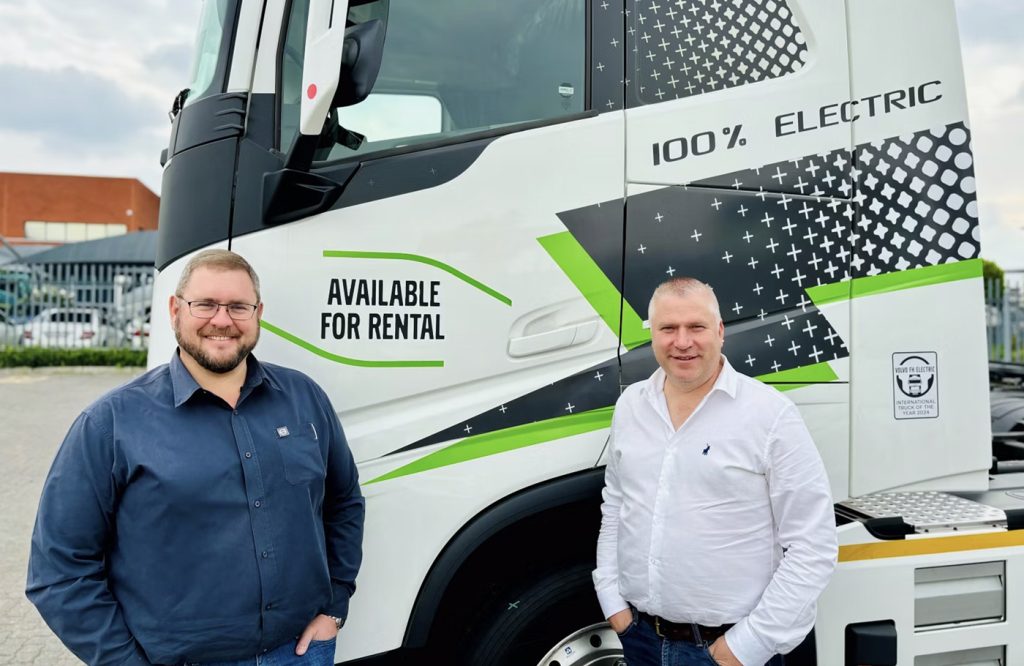Rentals on the rise
Rentals on the rise
Times are tough. Vehicle rentals might help operators to curb costs, while doing their part for the environment as well…
The global commercial vehicle rental and leasing market stood at US$93.7 billion in 2022, according to a report from TechSci Research, a research-based management consulting firm. In its piece, “Commercial Vehicle Rental and Leasing Market – Global Industry Size, Share, Trends, Competition Forecast & Opportunities, 2028”, it highlights that this sector is anticipated to grow with a compound annual growth rate (CAGR) of 7.5% in the forecast period – from this year until 2028.
“The global commercial vehicle rental and leasing market is a dynamic and rapidly evolving sector of the transportation industry. It plays a crucial role in providing businesses with flexible and cost-effective solutions for their transportation needs. This market encompasses a wide range of vehicles, from trucks and vans to specialised vehicles used in various industries such as logistics, construction, and manufacturing,” notes the report.
“One of the key drivers of the commercial vehicle rental and leasing market is the increasing demand for flexible and scalable transportation solutions by businesses,” it continues. “Many companies are opting for rental and leasing services rather than purchasing vehicles outright, as it allows them to adjust their fleets according to their specific needs, thereby reducing operational costs and improving overall efficiency. This trend is particularly significant in industries where demand for transportation can fluctuate seasonally due to market conditions.”
TechSci Research also lists last-mile delivery growth as one of the key market drivers for this sector. “The growth of e-commerce and online shopping has driven up the demand for last-mile delivery services. As a result, rental and leasing companies offering delivery vans and trucks have seen increased business. This trend is expected to continue as e-commerce continues to expand,” it elaborates.
According to the report, flexible leasing models represent one of the key market trends, with traditional long-term models giving way to more flexible options. “Short-term and on-demand rentals, as well as subscription-based models are gaining popularity. These flexible solutions cater to businesses that require vehicles for shorter durations or need to scale their fleets rapidly,” it explains.
Electric and sustainable vehicles are another trend highlighted. “There is a growing emphasis on sustainability in the commercial vehicle rental and leasing market,” says the report. “Companies are increasingly offering electric and alternative fuel vehicles to meet environmental regulations and cater to eco-conscious businesses. Electric vehicle adoption is expected to continue to rise as charging infrastructure expands.”
Operators across Mzansi don’t have to be left out in the cold on this front, as Volvo Trucks South Africa has announced the introduction of its new Equipment-as-a-Service (EaaS) model for electric truck rentals in the country.
The local Volvo electric truck range currently consists of FH, FM, and FMX models, configured as 4×2, 6×2, and 6×4 tractors. The company will also soon have FM 4×2 and 6×2 rigids available.
“We recognise that the high initial capital cost of electric vehicles makes them harder for customers to bring into their business, especially those that have shorter-term contracts with their customers,” says Eric Parry, senior manager of sustainable solutions at Volvo Trucks South Africa. “The intention is to bring down the ‘barrier to entry’ for those with the environmental ambition to move to cleaner transport solutions. That is why we will also be offering these as rental units to our customers.”

“There is a clear demand for rental trucks in South Africa, as proven by the success of companies with their diesel vehicle offer. We will be the first in South Africa to offer electric trucks in an Equipment-as-a-Service rental solution,” adds Paul Uys, managing director of Volvo Financial Services Southern Africa.
“The biggest advantage of vehicle rental is there is reduced capital outlay compared to when you purchase a truck,” he continues. “The rental option also allows you more flexibility in using the vehicle for a shorter period, without the commitment attached to a long lease obligation.”
Volvo Trucks’ EaaS rentals will be available countrywide. The company also partnered with an established service provider to offer rental customers the necessary charger infrastructure across South Africa, addressing the need for an easily accessible charging network.
“We run detailed simulations for each route that a fleet would like to operate an electric truck in, and this allows us to determine the optimal location and size of the charger. Our trucks can take up to a 250kW DC fast charger,” explains Parry. “Then, depending on the client’s needs, we will be able to do a site survey and recommend the optimal charger installation for their location. Our supplier will be able to rent the charger to the client for the period of the vehicle rental.”
The Volvo Financial Services EaaS rental solution is based on a period of six months or longer, and the amount will include the maintenance and insurance cost of the unit. Each truck will be covered by a full Volvo Trucks Gold Maintenance contract for the life of the vehicle.
Volvo Trucks currently has three dealers in the major metros, with trained technicians and the specialised tools to be able to support the full electric range. In general, the trucks will only need to come in once a year for service, irrespective of the mileage they travel.
Special driver training is also available and is aimed at getting the best out of an electrically powered truck. However, the control, couplings, and driving style are identical to a diesel model, so there is not much functional training needed.
“A customised and detailed agreement is entered into with each client, and is dependent on the vehicle and the type of operations in which the truck will be used,” says Uys. “The rental units will also incorporate Volvo Connect, allowing customers access to a range of fleet management solutions like vehicle tracking.”
He adds that a “rent-to-own” option is not yet available, but that customers can finance electric trucks with ultimate ownership subsequently passing to them.
“These fleets are usually running regional operations. From big blue-chip corporates to smaller fleets, we have received interest from a range of companies,” says Parry. “The rental option enables them to test out the product in their operation for a meaningful amount of time, without the initial capital investment.”
Karan Chechi, research director at TechSci Research, summarises things perfectly: “The trend towards sustainability and eco-friendly vehicles is expected to continue its upward trajectory. As environmental regulations become more stringent and companies place a greater emphasis on corporate social responsibility, the demand for electric and low-emission vehicles will likely surge. The [vehicle rental and leasing] market’s adaptability and flexibility will remain its key strengths, catering to businesses seeking cost-effective and scalable transportation solutions.”
Published by
Jaco de Klerk
focusmagsa




